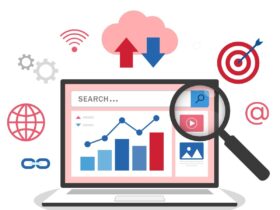Building a strong credit history is crucial for many financial milestones. It impacts your eligibility to qualify for loans, rent an apartment, and even get specific jobs. But what if you’re starting or have a history of missed payments? While neither scenario is ideal, having no credit history is less problematic than bad credit.
Let’s dive deeper and explore why, along with steps you can take to improve your situation.
Credit Invisible: What Does It Mean to Have No Credit History?
Having no credit history, also known as being “credit invisible” or “unscorable,” means insufficient information in your credit report to formulate a credit score. It can happen for several reasons:
- You’ve never had credit cards, loans, or other lines of credit.
- It has been a while since you last used credit.
- You’re new to the country and still need to build credit.
- You’re a young adult just starting.
While it might seem concerning, being credit invisible isn’t inherently negative. It just means you have a blank slate regarding credit history.
Bad Credit: When Your Past Payments Tell a Negative Story
Bad credit means having a low credit score, generally below 580 on the FICO scale, caused by negative marks on your credit report. These marks can include:
- Delayed or overdue payments on loans or credit cards
- Bankruptcy filings
- Debt collections accounts
- High credit card utilization (owing too much on your credit cards)
Having bad credit makes it difficult and expensive to borrow money. Lenders see a low score as a sign of risk, which can lead to higher interest rates and fees or even loan rejections.
While bad credit can limit your options, online lenders for bad credit can offer personal loans, lines of credit, and even joint loans with a co-signer to help you consolidate debt, cover emergencies, or finance other needs.
Why Bad Credit is Worse than No Credit
While both bad credit and no credit present challenges in accessing credit and financial opportunities, bad credit can be more detrimental in the long run due to its lingering effects and implications:
- Concrete evidence of risk: Bad credit provides lenders with tangible proof, such as late payments or bankruptcy, indicating that you pose a higher risk as a borrower than someone with no credit history.
- Lingering adverse effects: Severe credit mishaps leading to bad credit, like bankruptcy or foreclosure, can persist on your credit reports for up to ten years, significantly impacting your creditworthiness and ability to qualify for loans or credit cards.
- Limited borrowing options: With bad credit, you may face outright denials for credit applications or be offered loans with higher interest rates, reducing your ability to access affordable credit options and potentially leading to financial strain.
- Impacts beyond credit: Bad credit can extend beyond financial realms, affecting your ability to rent an apartment, qualify for specific jobs, or even secure insurance coverage, impeding various aspects of your life.
- Slow recovery process: Rebuilding credit after experiencing bad credit can be lengthy and arduous, requiring years of responsible financial behavior to address the derogatory entries on zour credit report and enhance your credit rating.
While having no credit history doesn’t carry the weight of past mistakes, it doesn’t guarantee approval either. You might face higher security deposits for utilities or apartments, and qualifying for the best interest rates could be difficult.
However, building good credit from scratch can be quicker than repairing bad credit. Without the burden of derogatory marks on their credit reports, establishing good credit can be as straightforward as opening a starter credit card and showcasing reliable repayment behavior.
Conclusion
So, is bad credit indeed worse than no credit? Yes. The good news is that you can improve your credit score with dedication and a strategic approach. First, review your credit reports and fix any errors that could affect your score. Consistently monitoring your credit score helps you understand the impact of your actions. Strategically pay down credit card balances to lower your credit utilization ratio. While rebuilding credit takes time, you can explore options like online lenders for bad credit who may offer personal loans or lines of credit to help consolidate debt, cover emergencies, or finance other needs.












